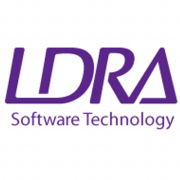Static Code Analysis offers an automated method to detect code defects early in the development process. It improves code quality by ensuring compliance with coding standards and is essential for maintaining reliable software.
Static Code Analysis tools evaluate source code without executing it, identifying potential vulnerabilities, bugs, and non-compliance issues. These tools help developers address technical debt by finding issues that might lead to software failures if left unresolved. With comprehensive reporting capabilities, they provide valuable insights into code quality and help ensure code adheres to specified guidelines, making them integral to secure coding practices.
What features should you look for in Static Code Analysis tools?In the finance sector, Static Code Analysis is implemented to enhance application security and ensure compliance with stringent regulations. In healthcare, it's employed to maintain high standards of software accuracy and confidentiality. Government agencies use it to safeguard sensitive information and achieve operational integrity.
Static Code Analysis is helpful for organizations striving to deliver high-quality software efficiently. It allows for early detection of defects, saves costs by reducing post-production incidents, and ensures the security of applications, which is critical in today's digital landscape.
















































Static Code Analysis enhances software quality by detecting code errors, inefficiencies, and security vulnerabilities early in the development process. By automating code reviews, it helps you adhere to coding standards and reduces the risk of defects making it into production, ultimately leading to more stable and secure applications.
What are the common tools used for Static Code Analysis?Popular Static Code Analysis tools include SonarQube, Checkmarx, ESLint, and Fortify. These tools automate the process of analyzing source code to identify potential issues, supporting a wide range of programming languages and offering integration with development environments for a seamless workflow.
How does Static Code Analysis help with security compliance?Static Code Analysis assists with security compliance by identifying code vulnerabilities that could lead to security breaches. Automated checks ensure that your code meets industry standards and policies, facilitating compliance with regulations such as GDPR, HIPAA, and PCI-DSS, thereby minimizing legal and financial risks.
Can Static Code Analysis integrate with CI/CD pipelines?Yes, Static Code Analysis can be integrated into CI/CD pipelines, allowing for continuous monitoring of code quality. By automating the analysis process, it provides immediate feedback to developers, enabling faster iterations and ensuring that only high-quality, error-free code progresses through the pipeline.
Is Static Code Analysis effective for detecting all types of code issues?While Static Code Analysis is effective at detecting syntax errors, code smells, and some security vulnerabilities, it may not catch runtime errors or logic flaws that occur during execution. Combining it with Dynamic Code Analysis and manual code reviews can provide comprehensive coverage and improve overall code quality.